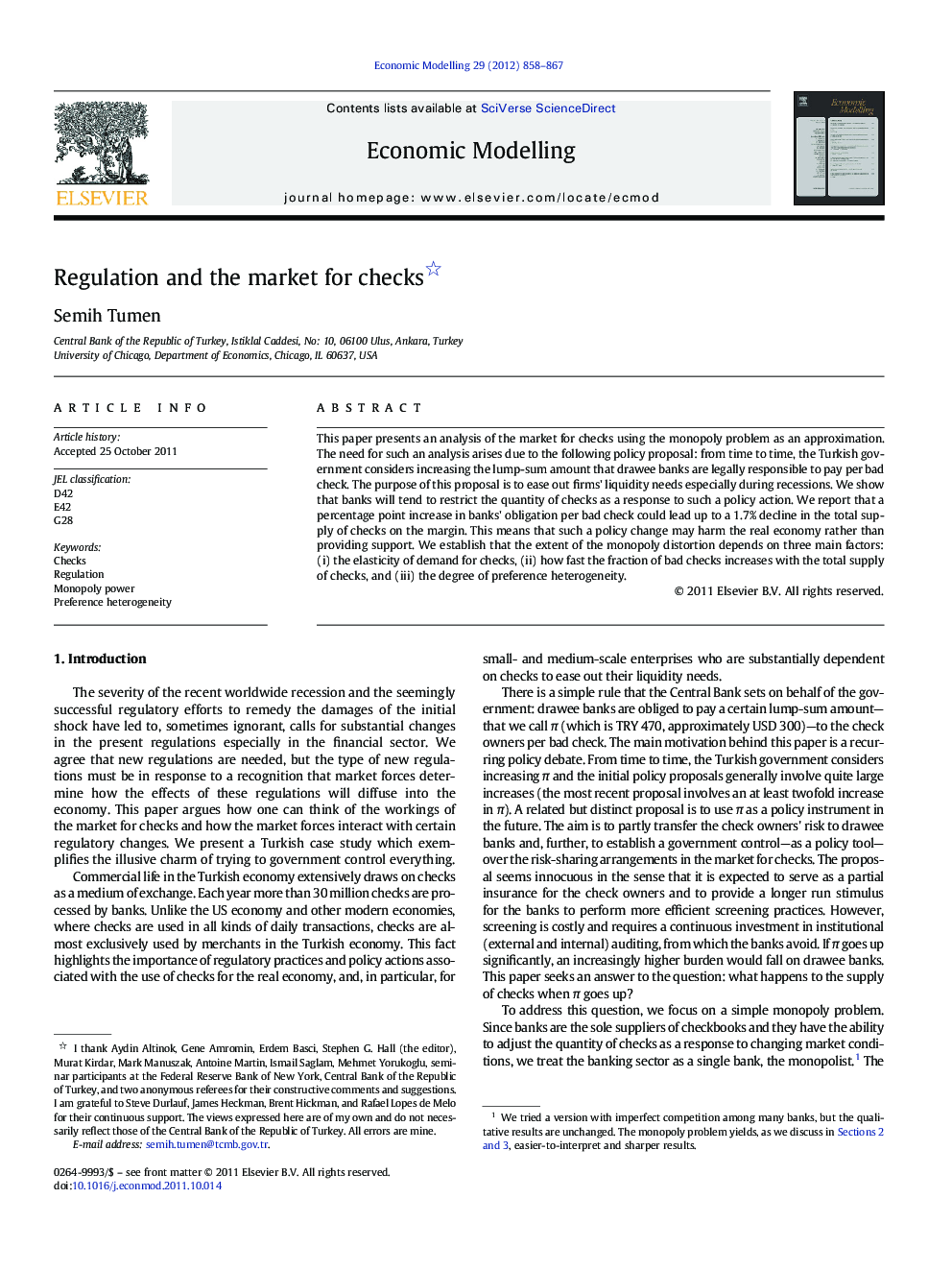| Article ID | Journal | Published Year | Pages | File Type |
|---|---|---|---|---|
| 5055044 | Economic Modelling | 2012 | 10 Pages |
This paper presents an analysis of the market for checks using the monopoly problem as an approximation. The need for such an analysis arises due to the following policy proposal: from time to time, the Turkish government considers increasing the lump-sum amount that drawee banks are legally responsible to pay per bad check. The purpose of this proposal is to ease out firms' liquidity needs especially during recessions. We show that banks will tend to restrict the quantity of checks as a response to such a policy action. We report that a percentage point increase in banks' obligation per bad check could lead up to a 1.7% decline in the total supply of checks on the margin. This means that such a policy change may harm the real economy rather than providing support. We establish that the extent of the monopoly distortion depends on three main factors: (i) the elasticity of demand for checks, (ii) how fast the fraction of bad checks increases with the total supply of checks, and (iii) the degree of preference heterogeneity.
⺠Regulating the market for checks may result in liquidity squeeze. ⺠Banks exercise their monopoly power in response to regulatory interventions. ⺠This will harm the real economy rather than supporting it.
